When designing a custom driveway, you want to consider both functionality and environmental impact. Permeable paving solutions allow water to flow through, reducing surface water runoff and helping manage sediment effectively. These options, including driveway drivable grass pavers, not only create a visually appealing road but also promote sustainability. This innovative approach to driveway design enhances your property while addressing important environmental concerns. If you’re ready to transform your driveway into an eco-friendly masterpiece, keep reading for expert insights and tips on permeable paving options!
Exploring Types of Permeable Paving Solutions
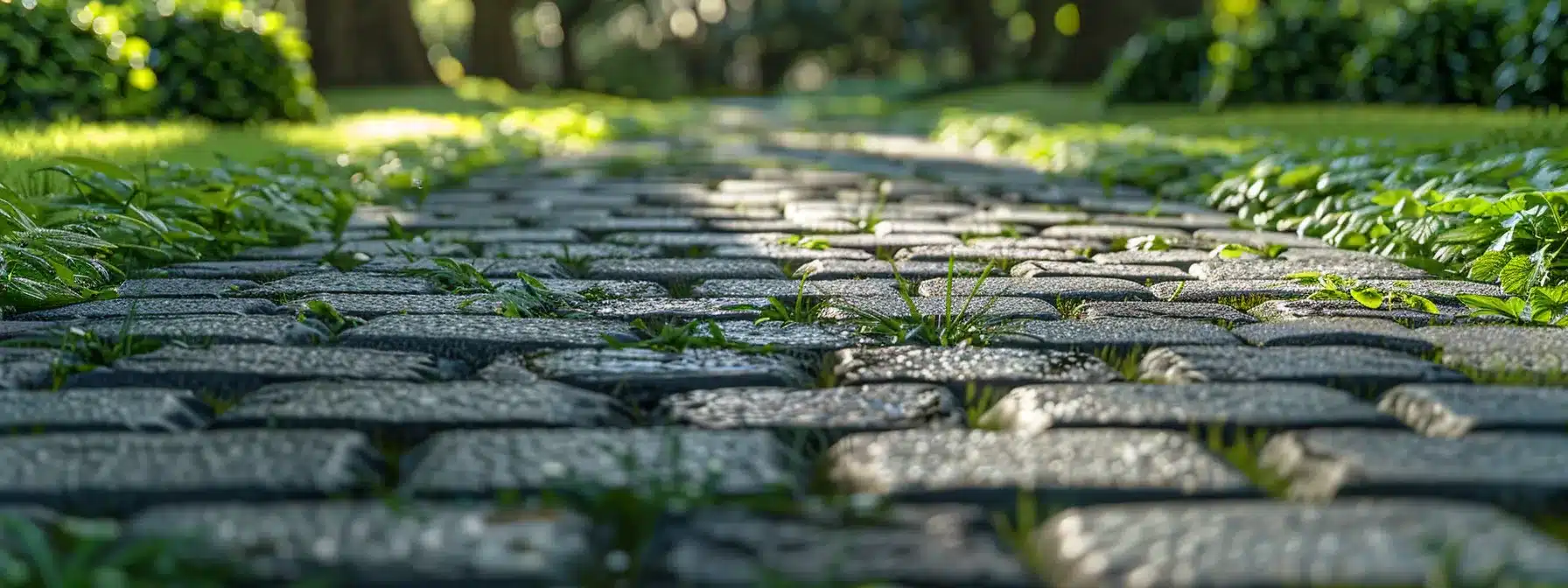
When considering your custom driveway options in New Hampshire, permeable paving solutions offer a sustainable choice that not only enhances aesthetic appeal but also addresses issues like erosion and sewerage runoff. You can choose from various types, including concrete or brick pavers that allow water infiltration while maintaining durability, plastic grids designed for controlled drainage, pervious concrete that blends strength with permeability, and grass pavement systems that integrate seamlessly into your lawn. Each option provides unique benefits, making it easier for you to contribute to a sustainable environment while enjoying a functional and attractive driveway.
Concrete or Brick Pavers
Concrete and brick pavers stand out as robust choices for your driveway that promote soil compaction and reduce the risk of creating an impervious surface. By allowing water to flow through the gaps, you help maintain the ecosystem around your property, supporting local flora and fauna while improving drainage and reducing runoff. This approach contributes to better stormwater management, enhancing the infrastructure of your home and the surrounding area.
Choosing these pavers means committing to an environmentally friendly option that enhances your property‘s curb appeal. The availability of various designs allows you to customize your driveway while ensuring proper water infiltration, mitigating erosion, and sustaining the natural balance of your environment. With the right installation, you create a durable surface that works harmoniously with your landscape.
Plastic Grids
Plastic grids provide a versatile solution for creating a durable driveway while promoting effective drainage. They allow precipitation to filter through their structure, which helps manage excess water and reduces runoff, preventing streams from becoming overwhelmed. Additionally, their design minimizes the risk of oil and other contaminants polluting the surrounding environment.
When you choose plastic grids, you’re opting for a system that supports the health of your landscaping. These grids stabilize the ground surface and protect against erosion, all while allowing the natural flow of drainage to occur. This sustainable choice not only enhances your property‘s functionality but helps maintain the ecological integrity of the area.
Pervious Concrete
Pervious concrete is an excellent choice for your property if you want to manage water effectively while reducing the risk of flooding. This type of concrete features a unique design that allows water to flow through, filtering out suspended solids before they can enter local ponds or streams. By installing pervious concrete, you enhance your property‘s drainage capabilities while promoting environmental sustainability.
Grass Pavement
Grass pavement offers an attractive and eco-friendly option for your driveway, allowing for natural infiltration of rainwater. This unique approach helps reduce soil erosion and maintains the integrity of the water table, which is vital for preserving local ecosystems. By choosing this sustainable solution, you align with principles supported by the United States Environmental Protection Agency for managing stormwater effectively.
With grass pavement, you create a space that thrives in various climates, providing both functionality and aesthetic appeal. The porous structure supports healthy grass growth while offering a stable surface for vehicles, making it a versatile choice. This method not only enhances the beauty of your property but also contributes positively to environmental well-being by promoting groundwater replenishment.
Benefits of Choosing Permeable Paving for Driveways
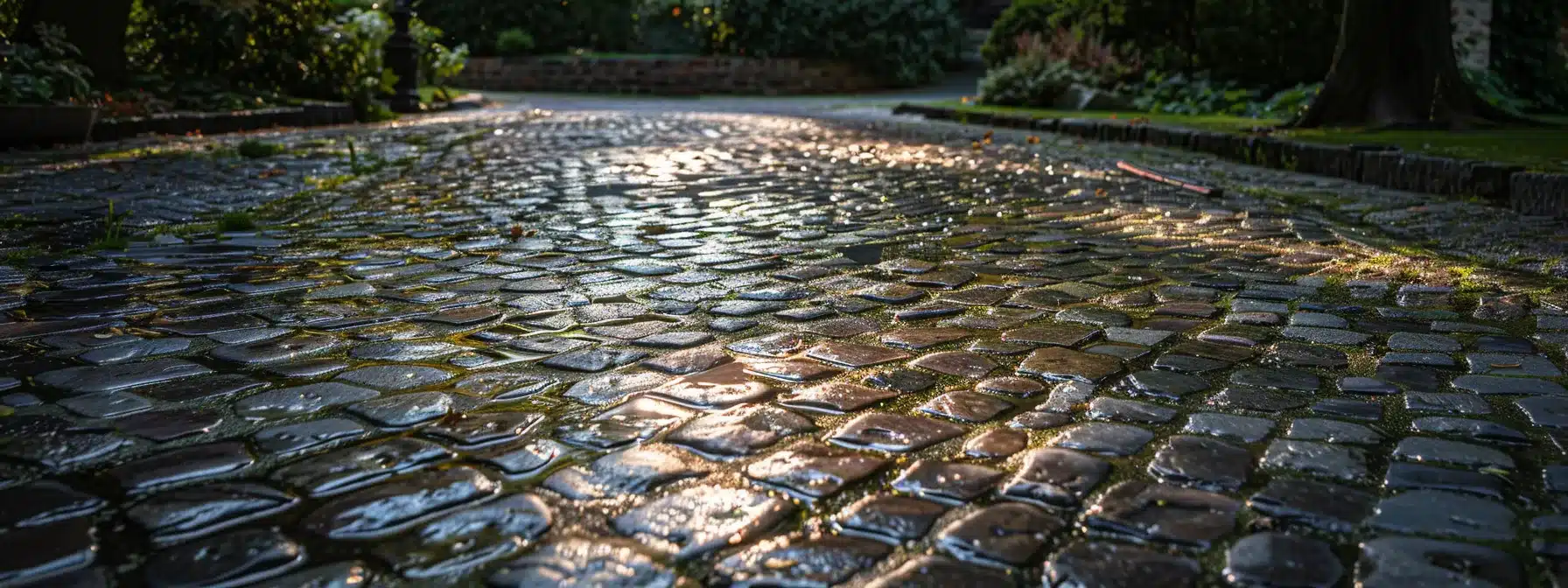
Choosing permeable paving for your driveway brings numerous advantages that go beyond aesthetics. By allowing water to filter through the surface, you significantly reduce runoff and prevent erosion, which helps preserve your landscape and surrounding areas. This innovative solution contributes to groundwater recharge, ensuring that valuable resources remain available for your garden or rain garden. Furthermore, permeable materials, such as brick, contribute to effective green infrastructure that minimizes the urban heat island effect, keeping your property cooler even in high-traffic areas. Embracing these options helps create a more sustainable environment, benefiting both your home and the broader ecosystem.
Reduces Runoff and Prevents Erosion
When you choose driveway permeable pavers, you create a system that allows fluid to pass through, significantly reducing runoff. This feature not only prevents soil erosion but also maintains the integrity of your landscape by directing water where it is needed. As a result, your walkway and surrounding areas become more resilient against heavy rainfalls.
Utilizing materials such as crushed stone alongside permeable pavers enhances drainage for your driveway. This combination keeps the ground stable, ensuring both vehicles and pedestrians can maneuver safely without creating ruts or puddles. By minimizing water flow across surfaces, you protect your property from erosion while promoting a balanced ecosystem.
Recharges Groundwater Supplies
Using permeable pavers for your driveway enhances sustainability by allowing rainwater to flow through the surface rather than pooling. This permeability encourages water to seep into the ground, recharging local groundwater supplies, which is crucial for your landscape‘s health. As the water filters through, it naturally reduces the likelihood of contamination from harmful pollutants that can arise during surface runoff.
Implementing pavers that prioritize permeability helps create a system where rainwater is effectively managed, benefiting both your property and the surrounding ecosystem. You can play a vital role in reducing surface runoff, ensuring that valuable groundwater resources remain intact. This eco-friendly approach not only supports your landscaping needs but also contributes positively to the environment.
Lowers Urban Heat Island Effect
Permeable paving helps in reducing the urban heat island effect by allowing rainwater to penetrate the surface and evaporate, cooling the surrounding air. This process not only manages stormwater efficiently but also enhances the sustainability of your property, as it creates opportunities for rainwater harvesting. By incorporating materials like cobblestone, you can achieve both an attractive surface and a cooler environment, minimizing the heat retained by traditional paving options.
When snow melts, permeable surfaces facilitate drainage and help prevent flooding, unlike impermeable materials that can trap water. This efficient use of surface space and effective recycling of water supports your landscaping needs while creating a more comfortable outdoor environment. Choosing permeable paving means you’re taking an active role in improving the immediate area’s climate and promoting ecological balance.
Planning Your Permeable Paved Driveway
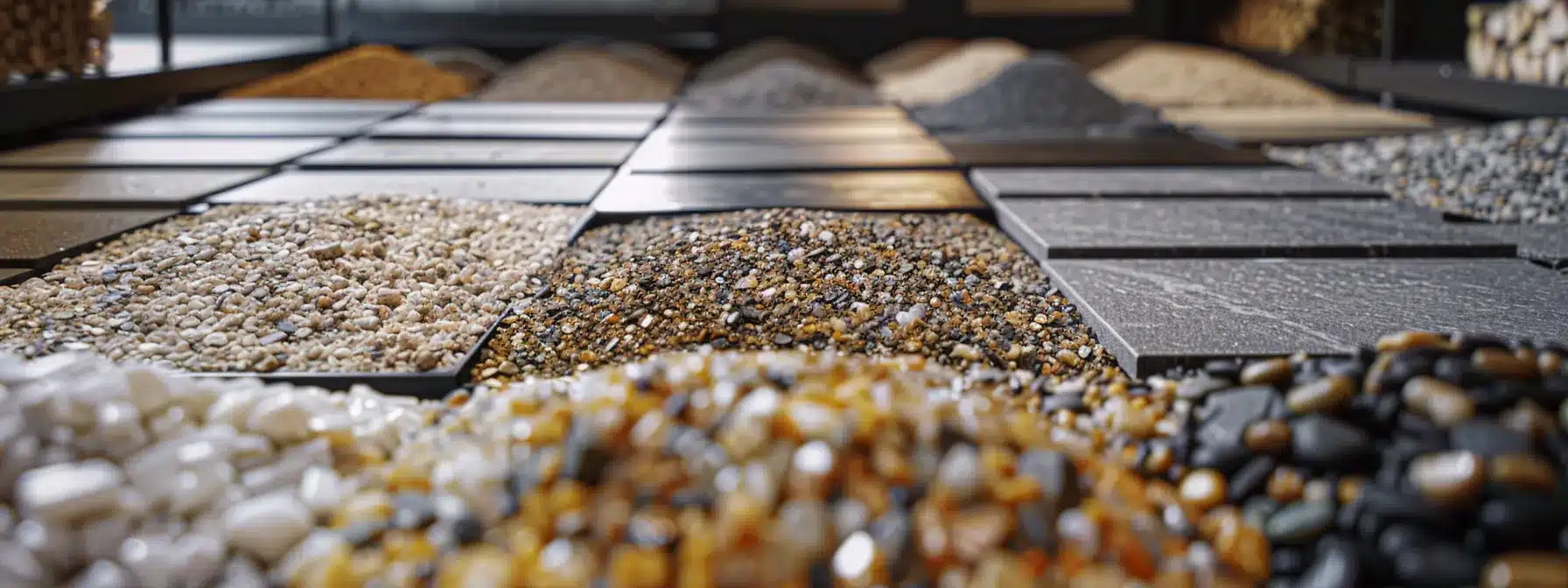
As you plan your permeable paved driveway, it’s essential to think about several factors that impact both functionality and environmental harmony. Start by assessing the climate and local soil conditions to ensure the materials you choose can effectively manage water during heavy rains, preventing puddles and enhancing drainage. Next, calculate the required permeability rate to maintain healthy groundwater levels while supporting the natural environment around your home. Finally, select the right material that caters to your specific needs, balancing durability with eco-friendliness to create a driveway that accommodates your vehicle while protecting local habitats from pollution and erosion.
Consider the Climate and Local Soil Conditions
Understanding your local climate and soil conditions is critical in planning your permeable paved driveway. If your area experiences heavy rains or potential flooding, selecting materials with appropriate porosity becomes essential to manage water effectively. Additionally, consider how debris from nearby trees or landscaping might impact your driveway’s performance, as regular maintenance will help prevent blockages and maintain the system’s functionality.
Evaluate the price of various permeable paving options in relation to the climate and soil where you live. Some materials may better withstand local conditions, especially if you frequently use a hot tub or other outdoor features that increase water usage. Making the right choice ensures longevity and resilience, ultimately resulting in a sustainable solution that suits both your lifestyle and the environment.
Calculate the Required Permeability Rate
To effectively calculate the required permeability rate for your permeable paved driveway, consider factors like soil type and anticipated rainfall. A well-balanced permeability level can significantly aid in erosion control, preventing soil disruption and reducing water pollution in nearby lakes. Selecting a concrete mix that allows for optimal drainage will support the natural flow of water, ensuring your driveway performs well in heavy rain.
Additionally, take note of your area’s urban heat island effect, which can increase after heavy rains if water does not properly drain. Ensuring that your driveway has the correct permeability rate helps to maintain a cooler environment by allowing water to evaporate rather than pool. By thoughtfully addressing these factors, you can enhance both functionality and sustainability in your driveway design.
Choose the Right Material for Your Needs
Choosing the right material for your permeable paved driveway in Vermont requires consideration of factors like snowmelt and deicing solutions. Materials that can withstand the volume of moisture from both rain and melting snow are crucial. Opting for options that incorporate sand can enhance drainage and help manage excess water effectively, preventing them from pooling on your property.
Your selection of materials should also address local winter conditions. Look for permeable paving systems that can handle the freeze-thaw cycle to maintain their integrity while providing optimal performance. Whether you choose permeable pavers, porous asphalt, or another option, ensure it meets your landscape‘s functional and environmental needs throughout the year.
Installation Tips for Permeable Paving
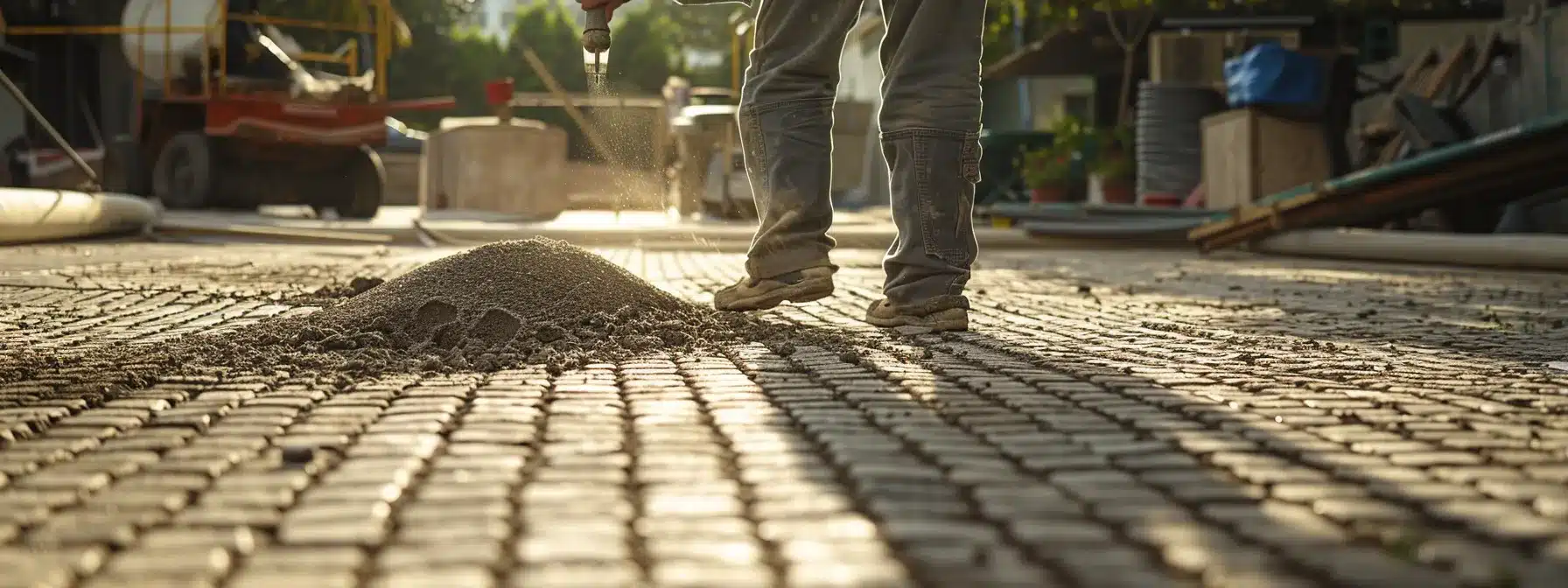
Getting your permeable paving right involves careful preparation and attention to detail. Start by ensuring the ground is properly graded to allow effective water flow into the reservoir beneath the surface. When laying down materials, utilize specific techniques tailored to plastic grids, pavers, or porous asphalt to maximize their benefits. Emphasizing precision in each layer will enhance both durability and aesthetics, ensuring that your driveway or patio not only looks great but plays a vital role in environmental protection and maintaining water quality. Consider these installation tips to achieve a beautiful and functional surface that supports sustainable practices.
Preparing the Ground and Base Layer
Start by assessing the soil quality and stability in your driveway area. A solid foundation is vital for any permeable paving solution you choose, including pervious concrete, as it ensures proper drainage and prevents long-term issues. Effective ground preparation can enhance the longevity of your driveway, ultimately protecting your investment and allowing you to take full advantage of the sale price.
Next, create a suitable base layer that supports the specific paving material you’ve selected. This step is crucial, as a well-constructed base aids in water flow and ensures durability, particularly when considering the unit price of your chosen materials. By investing time and effort into preparing the ground properly, you enhance the functional benefits of your driveway while adding aesthetic value to your property.
Proper Laying Techniques for Different Materials
When laying down permeable paving materials like pervious concrete or plastic grids, ensure that the surface is level and well-prepared to promote effective drainage. Proper installation techniques help prevent issues related to petroleum contamination and maintain the health of surrounding vegetation in your landscape. Taking time to set the right foundation reduces potential erosion and promotes a sustainable approach to urban planning.
Utilizing the correct cement mix and adhering to the specifications for each material will enhance the durability and performance of your driveway. Pay special attention to how the materials interlock or fit together, as this can impact water flow and overall functionality. By focusing on these laying techniques, you contribute to a resilient outdoor space that integrates seamlessly with your landscape and supports long-term environmental health.
Finishing Touches to Ensure Durability and Aesthetics
To achieve a durable and attractive permeable driveway, focus on the finishing touches that enhance both performance and appearance. Applying a sealant can protect the paving materials from the elements, reducing the risk of damage during drought seasons. This extra layer not only maintains the aesthetic appeal but also supports groundwater recharge by ensuring that the drainage system functions optimally.
Carefully selecting edging materials around your permeable paving adds structure and visual interest to your driveway. Consider using natural stones or decorative aggregates that align with your landscaping while effectively directing water toward your soil, promoting better construction practices. These choices enhance the overall look, ensuring your driveway stands out while helping to manage stormwater efficiently.
Maintaining Your Permeable Paved Driveway
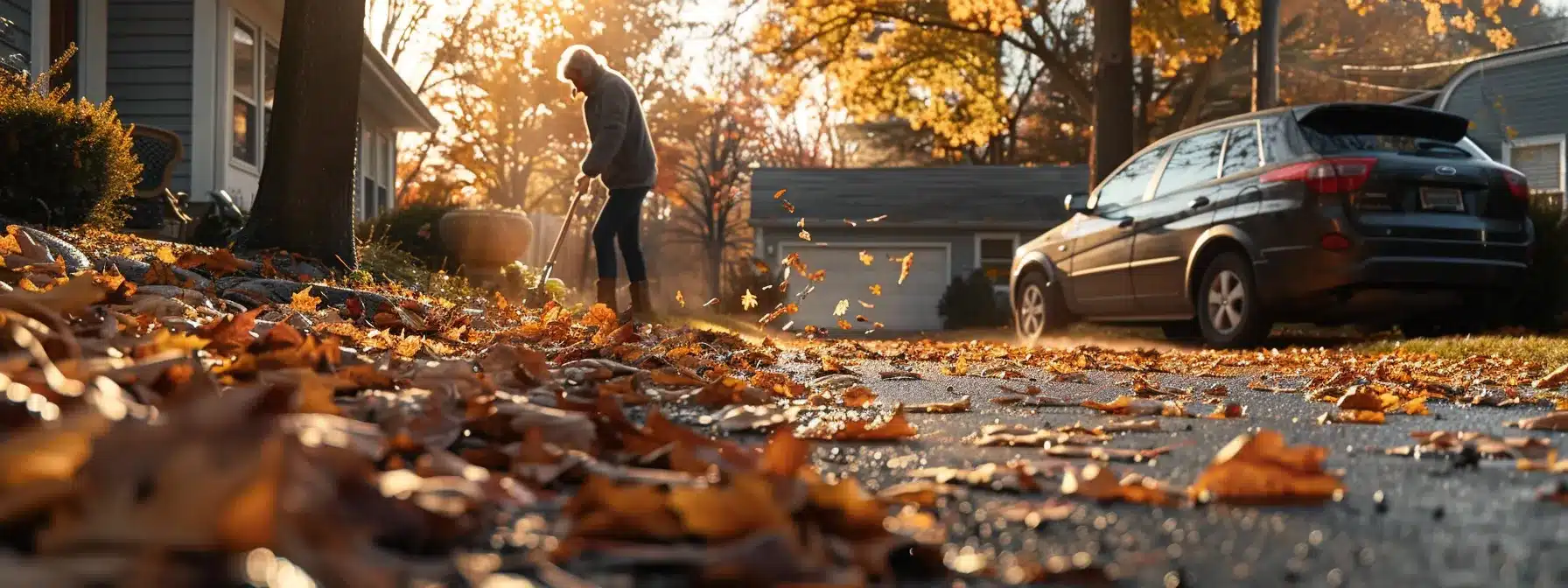
To keep your permeable paved driveway in top shape, regular maintenance is key. Start with routine cleaning to ensure water continues to flow freely through the surface. Addressing this not only enhances appearance but also prevents potential drainage problems. Be vigilant about controlling weeds and moss, which can compromise functionality and aesthetics if left unchecked. Lastly, long-term care for permeability involves periodic assessments and maintenance practices that preserve the integrity of your paving. By actively managing these aspects, you ensure that your driveway remains both functional and visually appealing for years to come.
Routine Cleaning Recommendations
To keep your permeable paved driveway looking its best, create a cleaning routine that focuses on removing leaves, dirt, and debris regularly. This simple practice ensures that water can flow freely through the surface, preventing clogs that can compromise its effectiveness. A broom or blower works well for this task, allowing you to maintain the driveway‘s appearance while supporting optimal drainage.
Additionally, consider rinsing the surface occasionally to wash away any finer particles that may accumulate over time. This method not only enhances aesthetics but also helps to preserve the permeability of the material. Regularly attending to these cleaning tasks will extend the life of your driveway and maintain its eco-friendly benefits.
Dealing With Weeds and Moss
To effectively manage weeds and moss on your permeable paved driveway, regular inspections should be part of your maintenance routine. When you spot growth, promptly address it to prevent spreading. Hand-pulling or using a hoe can remove unwanted plants without damaging the paving materials.
If you notice persistent moss or weeds, consider applying an eco-friendly herbicide that will target unwanted growth while protecting your driveway‘s permeability. Keeping the area well-ventilated and dry can also deter moss and help maintain the aesthetic appeal of your driveway. Consistent attention will help ensure that your driveway remains both functional and visually pleasing.
Long-Term Care for Permeability
To ensure the long-term permeability of your driveway, regularly evaluate its performance and conduct necessary repairs. As seasons change, watch for signs of water pooling or erosion that may indicate that the drainage system needs attention. Taking prompt action will help maintain functionality and protect your investment in sustainable paving.
Additionally, consider resurfacing or re-graveling your driveway as needed to restore its efficiency. This proactive approach will keep your paving materials in optimal shape, allowing for continued water infiltration and preventing sediment accumulation. By actively caring for your permeable driveway, you support both its durability and your landscape’s health over time.
Innovative Examples of Permeable Driveways

Many homeowners and business owners are turning to permeable paving as an environmentally friendly solution for their driveways and parking areas. You’ll find residential projects showcasing creative designs that harmonize with the landscape while effectively managing water runoff. In commercial spaces, sustainable parking solutions stand out, demonstrating a commitment to eco-conscious practices that enhance both functionality and aesthetics. Public areas are also reaping the benefits of permeable surfaces, helping to control stormwater while creating inviting outdoor spaces for the community. Each of these examples highlights the versatility and effectiveness of permeable paving in various settings, encouraging you to consider its application for your own projects.
Residential Projects That Utilized Permeable Paving
Many homeowners are opting for permeable paving in their residential driveways, as it not only enhances the landscape but also supports efficient water management. For instance, a charming suburban home might feature attractive brick pavers that blend seamlessly with the surroundings, allowing rainwater to filter naturally into the ground. This practical choice not only boosts curb appeal but also plays a crucial role in protecting local ecosystems from flooding and erosion.
You may notice some innovative designs where permeable surfaces incorporate rich green spaces alongside the driveway, promoting a healthy habitat for local plants and wildlife. By utilizing grass pavers, homeowners can create an inviting drive that withstands vehicle traffic while allowing grass to flourish, providing an eco-friendly aesthetic that enhances outdoor living areas. Such projects showcase how permeable paving can harmonize functionality with beauty in your residential setting.
Commercial Spaces With Sustainable Parking Solutions
Many businesses are realizing the benefits of using permeable pavement for their parking areas. This choice not only enhances the visual appeal of the property but also contributes to better stormwater management. With permeable surfaces, excess rainwater can flow through the pavement, redirecting it into the ground and reducing the burden on drainage systems.
Implementing sustainable parking solutions helps commercial spaces meet environmental goals while providing practical benefits. You’re likely to notice how these innovative designs integrate seamlessly with green landscaping, promoting biodiversity and creating a welcoming environment. By investing in permeable paving, your commercial property can demonstrate a commitment to sustainability that resonates with customers and stakeholders alike.
Public Areas Benefitting From Permeable Surfaces
Public parks and community spaces benefit greatly from permeable surfaces, as these systems effectively manage rainwater runoff and reduce flooding risks. You’ll see how water seeps through the pavement, replenishing local groundwater supplies while keeping areas dry and usable after heavy rains.
In urban settings, these paving solutions enhance outdoor aesthetics and promote biodiversity by integrating green spaces alongside walkways. As you stroll through these areas, you’ll appreciate the connection of the natural environment with functional design, reinforcing the community’s commitment to sustainability and ecological health.
Conclusion
Sustainable driveway options with permeable paving significantly enhance environmental health by reducing runoff and preventing erosion. These solutions promote groundwater recharge, support local ecosystems, and help manage stormwater effectively. By integrating materials like brick pavers, plastic grids, pervious concrete, or grass pavement, homeowners achieve both functionality and aesthetic appeal. Choosing permeable paving demonstrates a commitment to sustainability, benefiting both individual properties and the broader community.




